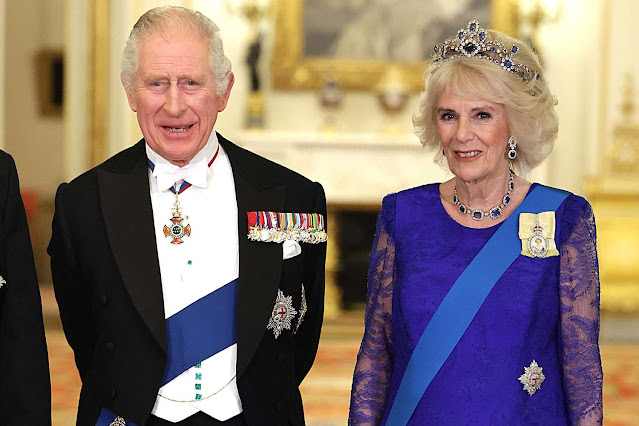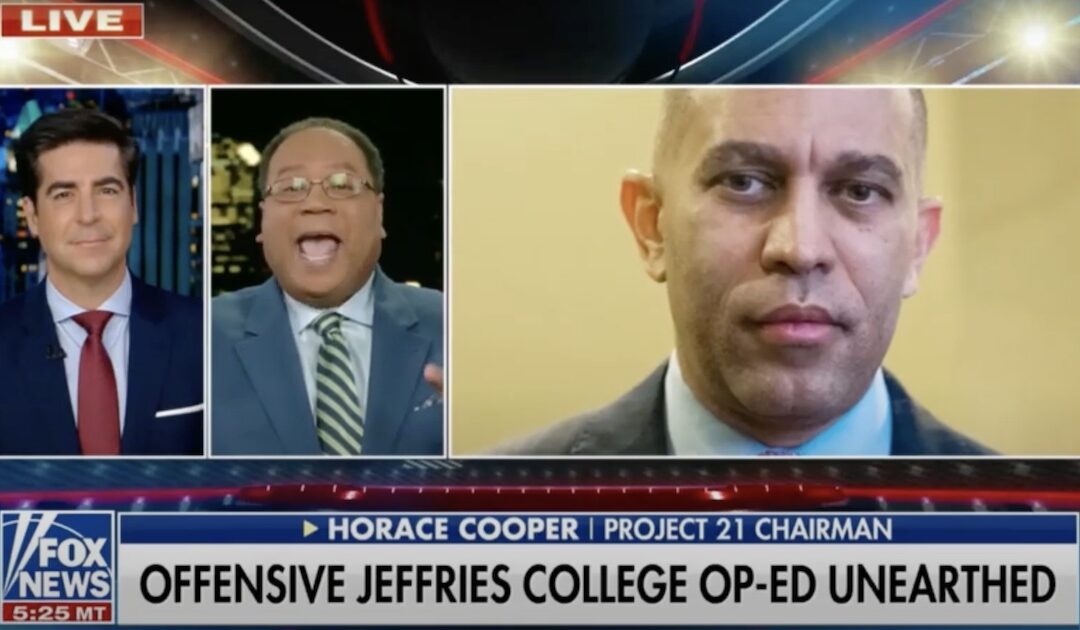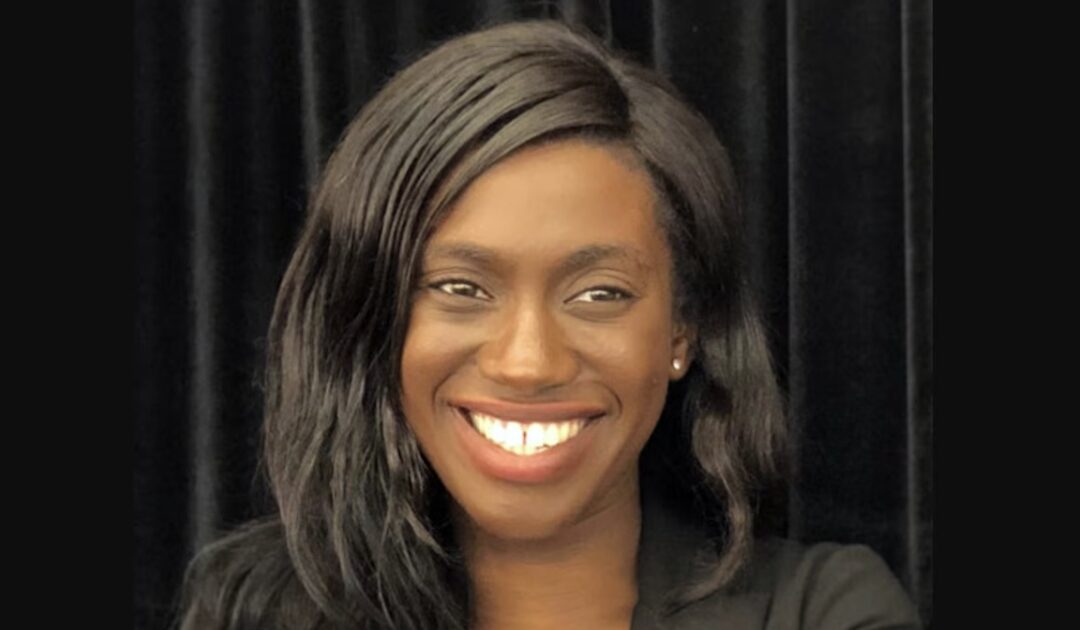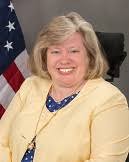SPIRITUAL
SPIRITUAL | POLITICAL | ECONOMICAL | CULTURALAre you ready to grow spiritually! Everything Spiritual:
LTP Spiritual News, Video Gallery, Trainings, Live Videos and More
LTP Spiritual News

King Charles coronation: Here’s what you should know about Saturday’s ceremony
LTP News Sharing:
King Charles
III will be crowned
as the United
Kingdom’s latest monarch on Saturday.
It will be the first such ceremony in more than 70 years
and continue a tradition that spans centuries.
Charles,
who legally became king after the death
of his mother, the late Queen
Elizabeth II, in September, will honor the royal
occasion in a three-day celebration that centers on the
coronation ceremony at Westminster
Abbey.
Here
is everything to know heading into the coronation.

How and when to
watch the coronation
The Washington Examiner will
be livestreaming the event, but viewers hoping to
witness the ceremony on television can stream the
service through CBS or ABC News. Coverage of the
coronation is expected to start around 5 a.m. EDT and
2 a.m. PDT on Saturday, May 6. However, the ceremony
itself will not start until 6 a.m. EDT and 3 a.m. PDT.
It begins at 11 a.m. in England.
What to expect
from the ceremony itself
Coronations are often broken
into six separate sections. Charles and his wife,
Camilla, will arrive at Westminster Abbey via the
Diamond Jubilee State Coach at 6 a.m. Eastern, where
the Archbishop of Canterbury will make the recognition
by introducing the royal couple to the congregation.
The audience will respond with “God save the king!”
Then trumpets will sound.
The second part is the oath of
allegiance, which will be led by the archbishop and
repeated by Charles. The king will vow to uphold the
law and the Church of England. Third is the anointing
of the monarch with holy oil, which will take place
behind a canopy because it is considered too sacred to
be witnessed by the public. This represents the
monarch’s designation as the head of the Church of
England and God’s consecration of Charles as monarch.
Fourth is considered the
investiture. Charles will be seated on the coronation
chair and given the crown jewels of
the United Kingdom, which include the Sovereign’s Orb
that dates back to the 17th century, two Sovereign’s
Sceptres, St. Edward’s Crown, and the Imperial State
Crown. Charles will wear both crowns during the
ceremony.

installation depicting the St Edward’s crown
in central
Coronation of King Charles III will take
at Westminster Abbey on May 6. – Vadim Ghirda/AP
Fifth comes the enthronement, in
which Charles will transition from the coronation
chair to the throne. The final stage is the closing
procession, wherein Charles and Camilla will leave the
abbey for Buckingham Palace in the Gold State Coach.
At Buckingham Palace, they will be greeted with a
royal salute and three cheers from the military.
Camilla will also be crowned the
queen in a similar but shorter ceremony on Saturday,
according to Buckingham
Palace.
Changes to
Charles’s coronation compared to that of previous
monarchs
Charles’s coronation is expected
to be a much smaller and shorter affair than previous
coronations. What was usually a three- or four-hour
demonstration of the wealth and power of the British
monarchy will instead be scaled back to between one
and two hours, and it will be more inclusive of other
cultures and religions.

1953, photo, Britain’s Queen Elizabeth
II and Prince Philip,
to supporters from the balcony at Buckingham
Palace,
Westminster Abbey, London. – Leslie Priest/AP
One major change in particular
is the king’s oath. Typically the monarch promises to
be the “defender of the faith” and vows to uphold the
rights and laws of the Church of England. However,
Charles is expected to change the language to make it
more inclusive to other religions, considering himself
a defender of all faiths. However, the monarch is
still considered the leader of the Anglican church.
Another major change will be the
public swearing an oath of allegiance to the monarch
instead of his hereditary peers. The oath will be: “I
will pay true allegiance to your majesty and to your
heirs and successors according to law. So help me
God.”
There will also be 12 new
musical compositions, including a new coronation
anthem composed by Andrew Lloyd-Webber. The others
were selected to better represent a more diverse
commonwealth.
A look at who made
the guest list
Another scaling down for the
coronation is the number of guests at Westminster
Abbey. In the past, the monarch invited 8,000 guests
to witness the ceremony in person, but this year there
will only be 2,000.

and Prince Harry arrive for the statue
unveiling on
Diana’s 60th birthday, in the Sunken Garden
Kensington Palace, London, Thursday July 1,
2021. – Yui Muk/AP
Included on the guest list are:
Members of the royal
family, including Princes
William and Harry, William’s wife,
Kate, and their children, Princes George and Louis and
Princess Charlotte. All three of Charles’s siblings
will also be at the ceremony, including his brother
Andrew, who has been engulfed in a scandal over his
friendship with late sex trafficker Jeffrey Epstein.
Other royal families and world
leaders will also be in attendance, along with British Prime
Minister Rishi Sunak and former
British prime ministers, including Liz
Truss. Also in attendance will be 850
representatives of the public who have been chosen for
their charity work.
Notably absent are President Joe
Biden, who is sending first lady
Jill Biden instead, and Harry’s wife, Meghan,
the Duchess of Sussex, who will remain in California
with the couple’s children. The duchess’s absence is
notable due to the tension between the royal family
and the Sussexes, which includes allegations of racism
in the royal family. The feud has been thoroughly
documented in multiple press interviews, a memoir by
Harry titled Spare, and a six-part
Netflix documentary.
How to celebrate
the coronation in DC
Locals hoping to celebrate the
momentous occasion for the United States’s strongest
allies can attend several parties, including viewing
parties at the Hillwood Estate’s Merriweather
Cafe for $38 a person, Duke’s
Grocery for $10 a ticket, or the King’s Coronation Tea
at the Four Seasons for $125 a person.
The Four Seasons event starts at
11:30 a.m. on Saturday and will include rare treats
like Charles’s coronation quiche or Queen Elizabeth’s
coronation children’s sandwich. It will also feature a
string quartet and bubbly drinks. The event at
Hillwood will include pastries, scones, and tea. The
Duke’s Grocery event will start at
6 a.m. and include a livestream of the ceremony and
British-themed food and drinks.
Those looking for a free event
can visit the British Embassy’s sidewalk
celebration, which includes cutouts
of the royals for photos, activities for children, and
British-themed refreshments.
There will also be additional
events in London and the U.K. over the weekend to
celebrate Charles’s ascension, including street fairs
and concerts. A full list of events in the U.K. can be
found here.
Author: Frances Rice

Horace Cooper: Black Americans Are More Conservative Than Americans at Whole
LTP News Sharing:
Fox News host Jesse Watters brought Project 21 Chairman Horace Cooper onto his show “Jesse Watters Primetime” to discuss recent revelations that U.S. House Minority Leader Hakeem Jeffries compared black conservatives to “house negroes.”
Horace pointed out that black conservatism has a rich history in the United States, including among some of our most revered public figures. He also noted that when you remove party labels and drill down on the issues, black Americans are actually much more conservative than you’d think.
Horace told Watters:
Our group put a statement out. I recognize that the comments that [Jeffries] made, he made while he was in college.
But my concern is that these comments appear to reflect an idea that conservatism is not something that is familiar to black America. I mean, you gotta look at people like Frederick Douglass, Harriet Tubman, Booker T. Washington. Not just Clarence Thomas today, not just Thomas Sowell.
There are a legion of black Americans who have supported freedom, supported small government, personal responsibility. In fact, when you ask black Americans some basic questions about faith, family and responsibility, what you see is that black Americans are actually more conservative than Americans at whole….
Hakeem Jeffries, black American conservatism is critical. It’s a critical part of America, just like conservatism is a critical part of America.
Author: The National Center
Doubt, deliverance, and the Eucharist: Sunday reflection
LTP News Sharing:
This image is a detail from “The Incredulity of Thomas” by Rembrandt van Rijn, 1634. On display at the Pushkin Museum in Moscow, Russia. Wikimedia Commons
This morning’s Gospel reading is John 20:19–31:
On the evening of that first day of the week, when the doors were locked, where the disciples were, for fear of the Jews, Jesus came and stood in their midst and said to them, “Peace be with you.” When he had said this, he showed them his hands and his side. The disciples rejoiced when they saw the Lord. Jesus said to them again, “Peace be with you. As the Father has sent me, so I send you.” And when he had said this, he breathed on them and said to them, “Receive the Holy Spirit. Whose sins you forgive are forgiven them, and whose sins you retain are retained.”
Thomas, called Didymus, one of the Twelve, was not with them when Jesus came. So the other disciples said to him, “We have seen the Lord.” But he said to them, “Unless I see the mark of the nails in his hands and put my finger into the nailmarks and put my hand into his side, I will not believe.”
Now a week later his disciples were again inside and Thomas was with them. Jesus came, although the doors were locked, and stood in their midst and said, “Peace be with you.” Then he said to Thomas, “Put your finger here and see my hands, and bring your hand and put it into my side, and do not be unbelieving, but believe.” Thomas answered and said to him, “My Lord and my God!” Jesus said to him, “Have you come to believe because you have seen me? Blessed are those who have not seen and have believed.”
Now, Jesus did many other signs in the presence of his disciples that are not written in this book. But these are written that you may come to believe that Jesus is the Christ, the Son of God, and that through this belief you may have life in his name.
Our world is made for doubt, disbelief, and cynicism. Or perhaps better put, the way we have shaped the world makes doubt and skepticism at least one rational response, if not the rational response, to events, claims, and movements. Heck, one of the shows I do here for our VIP members is called The Amiable Skeptics. We may not start our lives with that level of resistance to belief and faith, but it doesn’t take too many disappointments and disillusion with this fallen world to beat it into us.
This comes to mind when reading about poor Thomas the Disciple, whose very human and rational response to the non-rational has enshrined him as Doubting Thomas. It doesn’t take much for us to put ourselves in Thomas’ place, however, and to have complete sympathy for his skepticism even in the face of his friends’ unanimous testimony. This story tells us less about ourselves and our own levels of skepticism than it does about Jesus and His determination to save us from it, even to this day.
Let us consider both appearances of Jesus in this Gospel passage with that in mind. The first time Jesus appears, the disciples have locked themselves away in fear of being next on a crucifix, a completely understandable reaction considering the events of that past week. The Messiah to whom they had just dedicated three years of their lives had been annihilated in front of them. Nothing had changed, at least to their perception. They had every reason to despair, even after hearing of the empty tomb and Mary Magdalene’s testimony.
It is in this moment of doubt and despair that Jesus returns the first time. Why does Jesus return then, or even at all, rather than just send the Holy Spirit either immediately or seven weeks later at Pentecost? For one, He needs to demonstrate the victory over death and the salvation of eternal life. That, after all, is the Gospel, the Good News of Jesus Christ, which the disciples will be commissioned to spread around the world and make disciples of all nations. But also, Jesus knows the hearts of His flock and knew that they needed Him in that moment of doubt and disillusionment.
Then consider why Jesus returns the second time. The disciples — other than Thomas — had already seen Jesus. They had already begun to testify to His victory, albeit only among Jesus’ followers at this point. Thomas still refused to believe it, however, leaving him still vulnerable to the same doubt and despair. Jesus then returns to save Thomas from his skepticism and bitterness, in part because Thomas will have his own mission for Christ, but also because Jesus loves him and wants him to embrace salvation.
When Thomas does embrace Christ, he exclaims, “My Lord and my God!” And traditionally, this response or something similar to it is quietly or silently prayed by the laity at the Mass at the point where the forms of the Eucharist are elevated. (I will usually do it in English the first time and Irish the second time: Mo Thiarna ‘is mo Dé. This reminds us of our connection to Thomas, of course, but it also recognizes the purpose of the Eucharist in the Mass.
When I covered the conclave in 2013, I became friends with another reporter from Germany, and we had a number of conversations about Catholicism, our respective countries, and so on. When the subject of the Eucharist came up, she was surprised to find that I believe it to be the actual body and blood of Christ. This turned into an interesting and challenging conversation — respectful in every way — over the difficulty of that belief, for both Catholics and non-Catholics.
This is the same crisis that faced Thomas in that first week. He had no context at all for belief in physical life after death, especially the kind of death Jesus suffered. Similarly, in our fallen world, we have no context at all for the miraculous, especially for the transubstantiation of the Eucharist. Because our fallen world rewards skepticism and doubt and forces us to seek ‘proofs’ of everything, we discard the non-rational entirely — even as people of faith.
We should see it exactly the same way that Thomas and the other disciples experienced Christ, however. Christ came back after defeating death to feed and strengthen the disciples’ belief in Him. Christ came back a second time to Thomas when the disciples’ testimony didn’t overcome Thomas’ despair. In both cases, Jesus comes back to offer His body as a testament to His victory and our salvation, in order to firm up their faith and purpose for the long and hard road ahead. The Eucharist is Christ coming back for each and every one of us for the same purpose — to strengthen us, to lift us, to show us His love and presence in eternity.
The Eucharist is our embrace of Christ, our rescue from despair and doubt. The great lesson today is not that we should share in a sense of shame for our frailty, but in wonder that our Lord stands ready to rescue us from it — in the Mass, in our hearts, and in our work for Him. As a well-known musical version of today’s Psalm puts it:
Give thanks to the Lord, for God is good,
His mercy endures forever,
Let the house of Israel say
God’s mercy endures forever!
____________________
NOTE FROM THE AUTHOR:
“Sunday Reflection” is a regular feature, looking at the specific readings used in today’s Mass in Catholic parishes around the world. The reflection represents only my own point of view, intended to help prepare myself for the Lord’s day and perhaps spark a meaningful discussion. Previous Sunday Reflections from the main page can be found here.
Author: Frances Rice

Project 21 Responds to Murder of New Jersey Councilwoman Eunice Dwumfour
LTP News Sharing:
Members of our Project 21 black leadership network are expressing sorrow over the fatal shooting of Eunice Dwumfour, a Republican councilwoman from New Jersey, who was only 30 years old.

Melanie Collette
Project 21 ambassador Melanie Collette, an active leader in the New Jersey State Republican Party (NJGOP), commented:
I am deeply saddened to learn of the tragic loss of Eunice Dwumfor, a beloved member of the NJGOP family and Sayreville community. Members of both sides of the aisle remember Councilwoman Dwumfor for her unwavering dedication to public service.
This heartbreaking incident has shocked us all, that such an abhorrent act of gun violence could take away someone so devoted to her community. We can seek solace in our unwavering faith while striving to honor Eunice’s legacy by following the example she left behind.
May love and peace fill those affected at this time.
Author: Jennifer Biddison

Melissa Ortiz: Lost Lessons of the Holocaust
LTP News Sharing:
![]()
Friday, the 27th of January, is Holocaust Remembrance Day. The theme this year is “Memory, Dignity and Justice.” It’s fitting in so many ways, especially when the first victims of the Holocaust are considered.

Melissa Ortiz
As part of a trip to DC with a group of 8th graders, we visited the Holocaust Museum. My instruction to them was that they had to consider each exhibit, especially since they were studying WWII in their US History classes. I gave them two hours to get through the Museum and told them to be ready to discuss things they’d seen. I knew they would probably go through quickly and use the seating area at the end to congregate.
When I reached the end of the tour, as I predicted, the students were indeed seated and waiting. They were not talking among themselves, though. They were completely silent, some shedding tears. As soon as they saw me, a few ran up to me and announced in completely shocked voices, “They would have killed YOU, too!” This reality, exquisitely presented by the USHMM, led to one of the most teachable moments I have ever experienced, before or since.
I have Spina Bifida Occulta. People with disabilities were the first victims of the Holocaust.
By most estimates, at least 250,000 disabled people of all ages were murdered during the Holocaust in the Aktion T4. They were culled from hospitals, veterans’ homes, privately sponsored care centers, schools, and their own private homes with the “explanation” that they were going to be taken to a place where they could receive much better medical care. Loved ones were encouraged not to visit or attempt contact until they received notice that their relative was settled in their
“new residence.”
Instead, these vulnerable human beings were taken directly to killing centers, murdered, and subsequently cremated. Their families received carefully timed fake update letters that ended with the notice of the death of their loved one. They were used as practice subjects for the eventual process that became the Final Solution at places like Dachau and Auschwitz.
There was outrage among people of faith once it became clear what was happening. Their concerns were summarily dismissed by the Reich, who deemed involuntary euthanasia necessary to ease suffering, save money and “purify” the Aryan race. Many people with disabilities who were murdered could perform different sorts of jobs. Some of them were even WWI heroes who had been severely injured. They were not “useless bread gobblers” as they had been labeled to market the process to the German people. Many of those people of faith who spoke out against T4 were placed in concentration camps and ultimately murdered themselves.
Nineteenth-century philosopher George Santayana said, “Those who cannot remember the past are condemned to repeat it.” With the decrease in teaching on the Holocaust in schools, the lessons of history are being forgotten. Ideas that were once reprehensible are again being embraced and championed. The twist is even more sinister this time. Murder is now called a compassionate choice. Medical Aid in Dying is thought to ease supposedly meaningless suffering, Euthanasia is now called Physician Assisted Suicide. Healers are again becoming killers simply to save insurance companies money and guard community resources. Money is calling the shots, not respect for all human beings who have something to offer simply because they are living. People of faith are being bamboozled into agreeing.
It’s presented as an “option” and thus voluntary. People with disabilities are targets. As inflation rises and resources tighten, a stealthy move will be made toward mandatory euthanasia for people who are expensive to maintain or problematic to include – back to the “involuntary euthanasia” that culminated with the Holocaust.
During my recent battle with cancer, I was questioned each time I had to check into the hospital as to whether I felt like a burden or needed “help to find a different choice” to the path I was navigating. I refused their ideas, got the treatment I needed and am now cancer free. Who stands up for people who are not strong self-advocates and have no real support system? It once was people of faith and a strong moral compass. They seem to be in short supply now for some of the most vulnerable among us.
Life is meant to be lived, even when it gets hard. America was once known as a shining city on a hill, a place where neighbors cared for each other as needed. To honor those lost, let us reset our moral compass so that the idea of killing someone simply for convenience’s sake is once again unthinkable. We must choose, as a civil society, to care for them until their last natural breath. That is the truest way to honor them while assuring dignity and justice for all.
Melissa Ortiz is a senior advisor to National Center for Public Policy Research’s Able Americans project. This was firast published at The Washington Times.
Author: The National Center
LTP Live Stream
Stay Tuned for our Live Event
LTP Spiritual Videos
[embedyt] https://www.youtube.com/watch?v=fDduRhTKyf4&width=1080&height=608&rel=-1&listType=playlist&list=PLXUofyRrbh6vC_6rz7cxc7atrDwrhHSAX&plindex=0&layout=gallery&gallery_style=carousel[/embedyt]
Spiritual
“Truth is eternal and unchangeable and does not submit itself to the thoughts, hope or actions of man.” -Weaver
Political
“No race, culture or nationality in America has ever achieved economic freedom by political means.” -Weaver
Economical
Success is a verb, not a noun. It is based upon what you are doing not what you are thinking.
Cultural
Success begins with the family! Only the American people can resolve social and economical problems.
